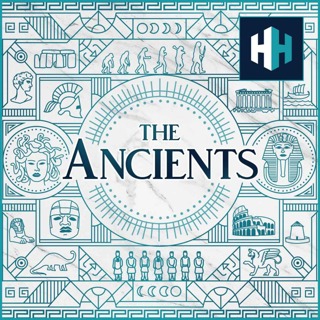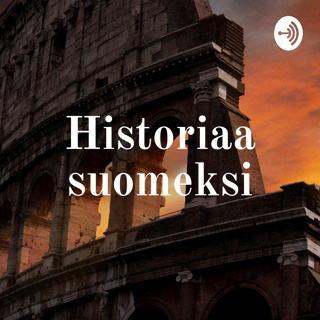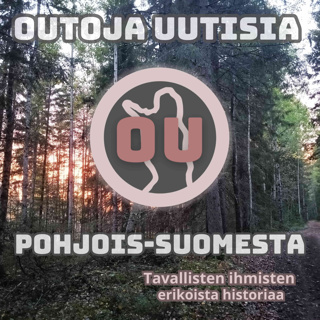
Saturnalia: Bonus Episode!
In this episode from the History Hit archive, Dan talks to Kevin Butcher about the Roman festival of Saturnalia. Held between the 17 and 23 December, Saturnalia invloved plenty of drinking, gift-giving, and a sense of a world turned upside-down. Hosted on Acast. See acast.com/privacy for more information.
22 Joulu 202026min

Hannibal: Crossing the Alps
In 218 BCE, Hannibal Barca's Carthaginian army, accompanied by horses and elephants, completed one of the most audacious military marches of ancient Mediterranean history. Setting off from southeast Spain, on their way they overcame a number of hostile Celtic tribes and traversed two major mountain ranges: the Pyrenees and then, most famously, the Alps. Battered and bruised Hannibal and his men eventually descended from the Alpine passes and arrived in Northern Italy at the end of 218 BC, where they soon clashed with the Roman legions awaiting them near the River Trebbia. This battle, fought on a snowy plain in freezing conditions, was the climax of the 218 BC campaign and the first of Hannibal's great victories against Rome.From the outbreak of the Second Punic War to the Battle of the River Trebbia, in this two-part podcast Dr Louis Rawlings, Senior Lecturer in Ancient History at Cardiff University, dives into the events of 218 BC and the incredible leadership of Hannibal. In this first episode, Tristan and Louis discuss the background to Hannibal Barca's march to Italy, before focusing in on one of the greatest adventure stories from antiquity: Hannibal's crossing of the Alps.Episode two, covering the Battle of the River Trebbia, will be released in a couple of weeks. Hosted on Acast. See acast.com/privacy for more information.
20 Joulu 202028min

Thucydides: Thoughts on the Athenian Empire
From 478 BCE until 404 BCE, a collection of Greek city-states were united under the leadership of Athens. Beyond inscriptions and a few minor sources, there is very little to tell us about life within this empire … that is, except the works of Thucydides, an Athenian historian and general who wrote a history of the Peloponnesian War. Professor Polly Low from Durham University spoke to Tristan about what we can learn from Thucydides work about this Athenian empire. How did Athens come to have this power? How did they keep their subjects in line? What did Thucydides miss out? Hosted on Acast. See acast.com/privacy for more information.
17 Joulu 202040min

The Garamantes: Farming the Sahara
Greco-Roman historians including Herodotus, Tacitus and Pliny the Elder would have us believe that the Garamantes were simple uncivilized cattle herders, living in sporadic camp dwellings. Until archaeological excavations began in the 1960s, this categorisation remained in place. Luckily, archaeologists like David Mattingly have dedicated years of research to sifting the fact from the fiction in the story of these residents of present day Libya. In this episode, David provides us with the revised version of the Garamantes’ civilisation. This includes masterful innovations in irrigation which allowed the Garamantes to farm two crops a year under the heat of the Saharan sun, as well as evidence of a social hierarchy and engagement in foreign trade. Listen as David turns the stereotype of the Garamantes on its head. Hosted on Acast. See acast.com/privacy for more information.
13 Joulu 202050min

Scotland's Enigmatic Ancient Structures
Brochs. Early archaeologists believed that they must have been built by the Danish, that the indigenous population could never have managed it. More recent suggestions have been that architects travelled Scotland, spreading the plans for these Iron Age ‘round houses on steroids’. Iain Maclean came on The Ancients to shed a little light on the truth of the stone buildings found across Scotland, particularly on the coastline. Whilst mentions of Romans, Egyptians and Greeks are familiar to our ears, the Scottish Celts have fallen under the radar. By studying brochs, archaeologists have not only uncovered the amazing architecture which has kept many of them standing, but have also learned more about the societies that built them. By examining the spread of the structures over time, they have been able to track changing climates; and by excavating the contents of the buildings, they have been able to track the communities’ ways of living off the land. Iain dreamt up the concept of the Broch Project for Caithness and, when he isn’t building brochs from various different materials, is spreading knowledge of this little understood part of Scottish history through events and community outreach. Hosted on Acast. See acast.com/privacy for more information.
10 Joulu 202031min

Old Testament Warriors
It’s probably the most famous book in the world, and it’s also essentially the only literary source which covers the genesis of warfare and the nation state. Simon Elliott is an archaeologist, historian and broadcaster. He came onto the podcast to talk to Tristan about 7,500 years of history - in under an hour. Using the Bible as a jumping off point, Simon takes us through the technological developments and innovation of warfare, bringing in other archaeological findings to support the singular perspective of the bible. This episode runs through the first walled settlement at Jericho, the first battle chariots and the development of different strategies. This truly is a who’s who of the Ancients, including the Assyrians, Babylonians, Sumerians, Akkadians, Egyptians of all kingdoms, Hittites, Sea Peoples, Philistines and Hebrews. Hosted on Acast. See acast.com/privacy for more information.
6 Joulu 202049min

Spartacus: Life or Legend?
‘I’m Spartacus!’ In the field of epic film making, the 1960 historical drama ‘Spartacus’, is legendary. Directed by Stanley Kubrick, adapted from the Howard Fast novel by Red Scare blacklisted screenwriter, Dalton Trumbo, and starring Kirk Douglas, Laurence Olivier, Peter Ustinov and Jean Simmons; it is a classic. But how much of the plot has emerged from the true story of a Thracian gladiator and slave who escaped his Roman captors and led an unsuccessful but impressive rebellion against their oppressors? How much of the film’s message was formed by the personalities involved in its creation, and the context in which it was made. In her own words, Dr Fiona Radford devoted years of her life to the man with the most memorable chin cleft in the world - Kirk Douglas, specifically as Spartacus. Her thesis traced the production history of this film, examining in particular the effect that the turbulent process had on the portrayal of female characters. Having taught at Macquarie University, ANU and the University of Sydney, she currently teaches history at secondary school level, and her conversation with Tristan in this episode is an eye-opener to 1950s film making as well as the legend of Spartacus. Hosted on Acast. See acast.com/privacy for more information.
3 Joulu 202047min

Dura-Europos: The Syrian Pompeii
When we think of Pompeii, we remember the city which became frozen in time after a natural catastrophe. Well, in 1920, exactly 100 years ago, another 'frozen city' was rediscovered. This time it was Dura-Europos, and rather than falling victim to a volcano, this city was destroyed after a bloody siege in 256 AD. Whilst there is no historical record of life in the Hellenistic, Parthian and Roman border city and garrison, its remains have proven to be a rich source for archaeologists since the 1920s. Between the only complete example of the semi-cylindrical Roman legionary shield and the perfect oval shields with beautiful paintings of Greeks and Trojans or Greeks and Amazons; beyond the regimental records and complete horse armour and the Palmyrene Gate; archaeologists have uncovered the story of the city. Tristan was joined on the podcast by Simon James from the University of Leicester, who talked through what we now know about life in Dura-Europa and the relationships between the Roman garrison, their dependents and the other inhabitants. He also offers a play-by-play of the battle which brought this city to a halt, and possibly one of the earliest examples of chemical warfare, all discovered through archaeology. Hosted on Acast. See acast.com/privacy for more information.
29 Marras 202049min






















